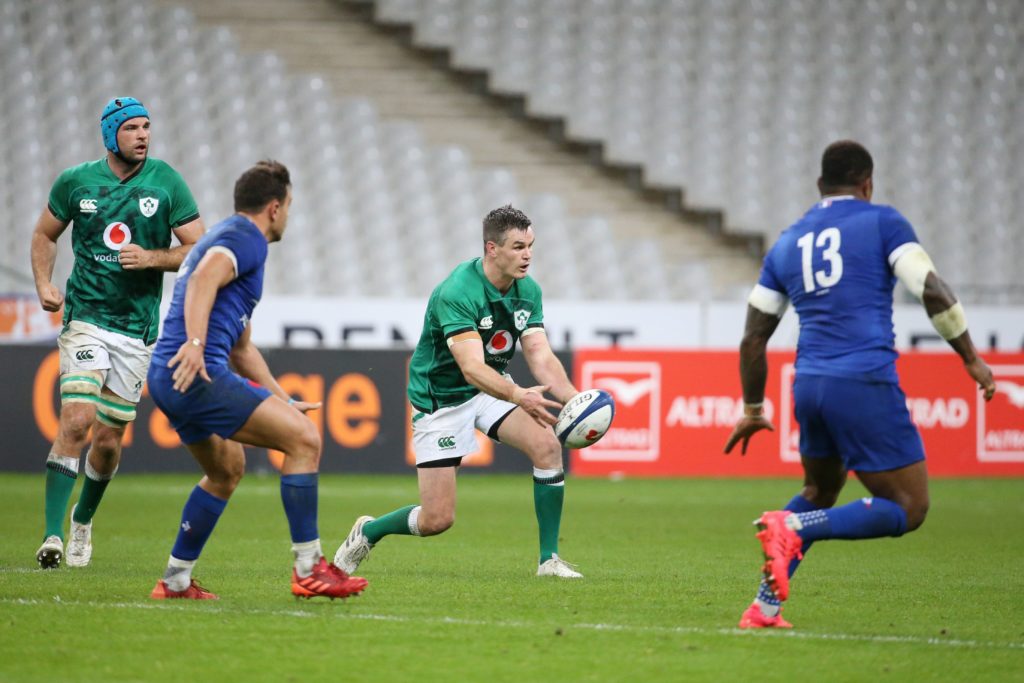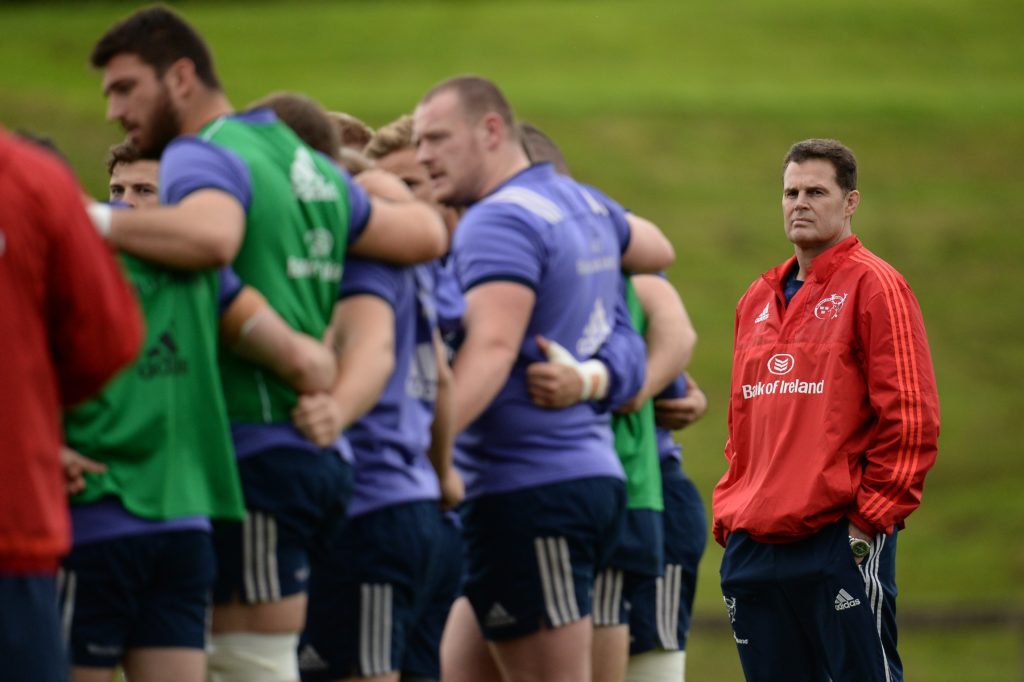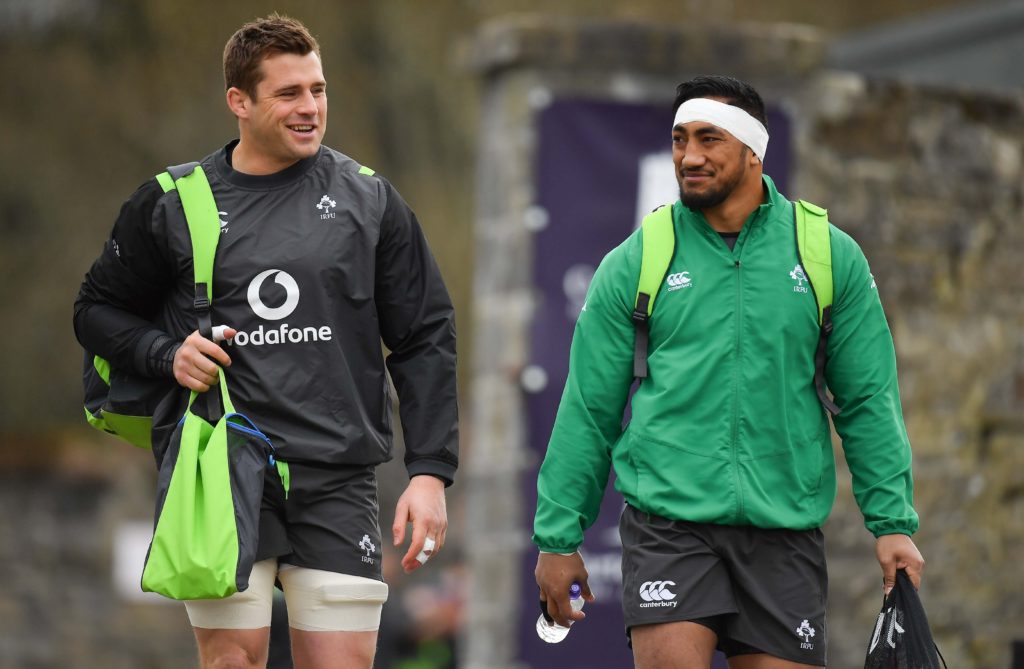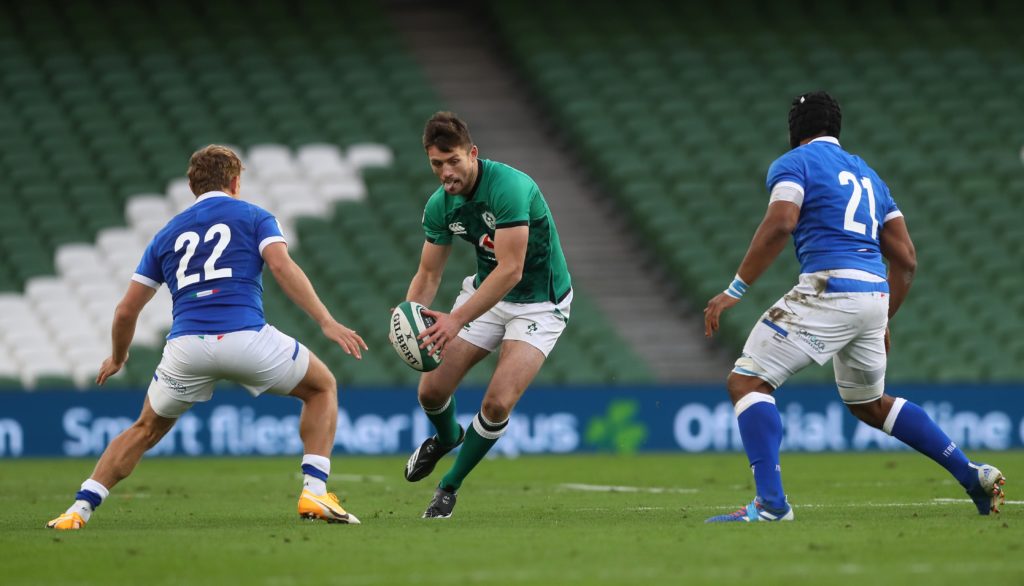Deep in the lost summer of sport, Irish Rugby produced a virtual analytics conference. A who’s who of the game filled our laptops screens. Sexton, O’Driscoll, O’Connell, Andy Farrell and Pádraig Harrington topped the bill, each one asked to recommend an inspirational sports book.
Farrell mentioned the Last Dance documentary with a tinge of regret that it didn’t “dig in too deep into the magical wonders of the coach Phil Jackson”.
“Sacred Hoops, Jackson’s first book, is an absolute cracker,” said the Ireland coach. “You actually get to understand how he managed all the chaos. It takes a special man to keep all those relationships going.”
That’s the job of an elite coach. That and managing your super star. Jackson would not have won any of his eleven NBA championship rings without squeezing every last drop out of Michael Jordan at the Chicago Bulls and Kobe Bryant at the LA Lakers.
The job of an elite coach is managing your super star. Jackson would not have won any of his eleven NBA championship rings without squeezing every last drop out of Michael Jordan at the Bulls and Kobe Bryant at the Lakers.
Phil Jackson on coaching Michael Jordan:
“I treated him like a partner, and slowly he began to shift his way of thinking. When I let him solve the problem himself, he was more likely to buy into the solution and not repeat the same counterproductive behaviour in the future.”
Phil Jackson on coaching Kobe Bryant:
“The most gratifying thing of all was watching Kobe transform from a selfish, demanding player into a leader that his teammates wanted to follow. To get there, Kobe had to learn to give in order to get back in return. Leadership is not about forcing your will on others. It’s about mastering the art of letting go.”
Farrell’s immediate solution to the Sexton conundrum was to make his 35-year-old outhalf the national captain. He empowered him to lead on the field through word and deed. Unfortunately, as soon as Farrell replaced Sexton with Ross Byrne in Paris, with eleven minutes remaining and Ireland trailing by eight points, the coach received a Jordan/Bryant reaction: utter disgust.

This created the sportswriter’s dream Monday morning: a storm in a teacup. The coach and captain came forth to play down the imagery that will forever be associated with Ireland’s 2020 Six Nations campaign.
Still, amidst the pettiness of the situation, one point kept shining through: the Sexton conundrum will, in so many ways, define Farrell’s time as head coach of Ireland.
Halloween night:
Ghost into the BBC studios where two former British and Irish Lions captains are mulling over Ireland’s defeat to France.
John Inverdale, the anchor, asks an obvious but necessary question. Come the 2023 World Cup, Johnny Sexton will be 38-years-old and Conor Murray will be 34.
Tick, tock?
It is worth repeating that Sexton and Murray are the best halfback combination to ever wear the green jersey. Sexton is the best 10 Ireland have had since Jack Kyle. Murray is the best 9 since nobody.
Paul O’Connell: “Provincially we are bringing players through. Are those guys ready for international rugby yet? I don’t think so. Have we a halfback pairing that we can replace Murray and Sexton with yet? I don’t think so. It might be the case in 18 months or two years and that could be plenty of time to blood them (for the World Cup in France).”
Have we a halfback pairing that we can replace Murray and Sexton with yet? I don’t think so.
Paul O’Connell
Martin Johnson: “You want to bring the guys into a good environment, to win. They might look at tonight and think Johnny Sexton made these brave calls but you have got to win the game. If you come into an established team that is winning and successful it gives that young guy an opportunity to play and just slot in. You don’t want a huge transition. You want to blood guys but do it gradually. There is a huge difference between coming off the bench in a big game you’ve already won, then starting against the All Blacks or South Africa. It is a very very different proposition. It is an art form bringing those guys through.”
Such artistry was almost perfected by Eddie Jones and Steve Hansen at the 2019 World Cup. The England and New Zealand coaches restyled their teams after disappointing results in 2018 but it was Rassie Erasmus who nailed the management of his resources.
To start with, Erasmus captured the mood of a nation by naming Siya Kolisi Springbok captain. Additionally, he neatly evaded a drugs scandal surrounding Aphiwe Dyantyi and accusations leveled at Eben Etzebeth following a nightclub incident. Best of all, Erasmus picked the correct team, settled upon an effective strategy and provided a wealth of inspiration to capture the William Webb Ellis trophy.
Along the way Rassie branded Ireland “soft.” The former Munster coach subsequently tweeted “context is important” but look at the documentary, “Chasing the Sun” He definitely says it.

Imagine telling Andy Farrell – to his face – that a team he coaches is soft.
Farrell is busy learning the “art form” Martin Johnson spoke about. In 2020 alone he is expected to blood more than ten players to the unforgiving test match arena while trying to avoid the inevitable pitfalls of following Joe Schmidt, Ireland’s greatest ever coach.
“To be the side that we potentially want to be, we’ve got to have a shift in mindset,” said Farrell after finishing third in his first Six Nations as a head coach. “Everyone said Paris was going to be tough, nobody really gave us a hope going there, but we had enough opportunities in the first-half (to win). If we had the ruthless mindset to take those opportunities, I thought we could have been 10 points up at half-time.
“That’s where I want us to be. I don’t want us to shy away from that. I want us to be that team. I don’t want us to dip our toes in the water and think: ‘We are in this game’. We need more than that.”
Farrell was defending Sexton’s decision to seek tries over three pointers at Stade de France but, equally, we hear a coach attempting to mould a team in his own likeness.
To be the side that we potentially want to be, we’ve got to have a shift in mindset.
Andy Farrell
The “ruthless mindset” Farrell demands is as evident in Sexton as it was in Kobe or Jordan. You see it in his truculent behaviour, you see it when he continually puts himself in harm’s way.
But, above all else, Farrell was talking about the ingredient Ireland teams have lacked since beating New Zealand in November 2018.
The real issue is durability. During the best Irish seasons in recent memory, 2009 and 2018, the squad suffered next to no injuries. Grand Slams duly followed.
Luck played a massive part. Or, to be kinder, they were unlucky with injuries in all the other years. That’s why the IRFU signed CJ Stander, Bundee Aki and James Lowe; to provide robustness Irish players do not possess, at least not until the James Ryan generation comes of age.
This is happening. Jacob Stockdale and Andrew Porter have already been joined in the senior ranks by Max Deegan, Hugo Keenan, Will Connors, Caelan Doris and Ryan Baird.

The same question will keep following them around: can they be better than what came before?
“They are quite mature for their age, even the younger guys,” said Peter O’Mahony. “A lot of these guys are test ready.”
Good, because there is no time to settle into international rugby.
But there is a pattern; Garry Ringrose looks like the best centre in the game, until he breaks his jaw or thumb or shoulder.
Perhaps that’s why Erasmus branded Ireland as “soft” when calling the Welsh “tough f**kers.”
Simon Easterby, Ireland’s assistant coach, was forced to respond: “I genuinely think this team is starting to understand what it takes to be physical, what it takes to win collisions, what it takes to prevent the opposition from getting into the game with that physicality and winning those collisions. There are times in the last 20 months when we haven’t won those and that’s all clear for people to see.”
There is no greater insult to label a rugby player. Ireland are anything but soft but they do fracture quicker than other nations.
There is no greater insult to label a rugby player. Ireland are anything but soft but they do fracture quicker than other nations.
This is a numbers game. As we write, Farrell cannot field six of Ireland’s probable squad as Jack Conan, Dave Kilcoyne, Tadhg Furlong, Ryan Baird, Jordan Larmour and Ringrose are crocked. Sexton joined that injury list ahead of this weekend’s England game, a situation made all the more interesting by Farrell’s decision to select Jamison Gibson-Park ahead of Murray. Finally, after a near decade in tandem, we will get a glimpse of a world post Sexton/Murray.
It will be fascinating to see how this unfolds because the difference between Ireland and France, New Zealand, South Africa, England and to some extent Wales is numerical. For example, Reiko Ioane would find it very difficult to be dropped by Ireland. That’s because the island only produces the occasional Jacob Stockdale but Ioane, at just 23, is yesterday’s wunderkind in New Zealand now Caleb Clarke has arrived.
Still, nobody wants to hear these kind of excuses because they make you sound… soft.
It has long been accepted that Irish brain power is only way to beat brawn. This demands that the smartest player in the game must remain on the field for as long as possible.
Accordingly there are two (and a half) scenarios for Ireland, Farrell and Sexton from now until France 2023.

Scenario 1: Move on from Sexton after 2021. The captain has made no secret of wanting to tour South Africa with the Lions. Ireland was initially penciled in to visit Fiji, in what would provide Farrell with an opportunity to bed in a new outhalf. It also fits O’Connell’s timeframe.
Scenario 2: Stay with Sexton until a bitter or glorious end. This would make him rugby’s equivalent of an ageing NFL quarterback. Different sports, bigger hits and less mobility needed (if you have a fortress like offensive line) but there are plenty of examples in American Football. Tom Brady is 43-years-old and still dominant, Drew Brees is 41, Ben Roethlisberger is 38. All three are still able to control the tempo of a game.
“I definitely, definitely don’t want to retire any time soon,” said Sexton at the virtual conference. “I’m reading a book called Play On [by Jeff Bercovici]. It’s all about how all the top athletes played on until their late 30s, early 40s and I’m reading it like the Bible at the moment and taking in every bit of it. My wife’s trying to throw it in the bin every chance she gets!”
Scenario 2.1: Injury to Sexton forces Farrell to move on. This is almost certainly going to happen. There are several candidates with Harry Byrne and Ben Healy showing the potential to skip over Billy Burns, Ross Byrne and Jack Carty.
Harry Byrne – younger brother of Ross – has all the traits for a long career as the Leinster and Ireland 10. Healy has the skill set and mentality to win matches, especially off the kicking tee. Joey Carbery is world class and injury prone in equal measure. Jack Crowley, another Munster outhalf, was sensational for the Ireland under-20s in 2020.
Farrell, meanwhile, will let it all play out. As for Johnny, well you just know Sexton will play on until one of the above dislodges him like he did Ronan O’Gara. First to try and step up is Ross Byrne, who gets his chance on Saturday. Fittingly, it’s at Twickenham. After all, all the big decisions in London are made at Number 10.
More from Gavin Cummiskey
If you’ve enjoyed this article, please share it with friends or on social media. We rely solely on new subscribers to fund high-quality journalism and appreciate you sharing this so we can continue to grow, produce more quality content and support our writers.


Comments
Join free and tell us what you really think!
Sign up for free